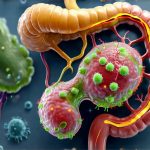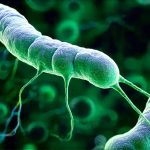The human body is an incredibly complex ecosystem, and much of its functionality relies on a delicate balance within. One key component of this balance lies in the trillions of microorganisms – bacteria, fungi, viruses, and other microbes – that reside primarily in our digestive system. This community, known as the gut microbiota, plays vital roles in everything from digestion and nutrient absorption to immune function and even mental health. When this intricate microbial ecosystem is disrupted, it leads to a condition called dysbiosis, which can have far-reaching effects on overall well-being.
Dysbiosis isn’t simply about having “bad” bacteria; it’s about an imbalance. It represents a shift in the composition and function of the gut microbiota, often characterized by a reduction in microbial diversity and an overgrowth of potentially harmful microbes. Understanding this complex interplay is crucial for appreciating how imbalances can impact our health and exploring potential strategies to restore harmony within the gut ecosystem.
What is Dysbiosis?
Dysbiosis, at its core, signifies a disruption in the normal equilibrium of the gut microbiota. It’s not always about an excess of pathogenic bacteria; it’s frequently about a loss of beneficial microbes alongside an opportunistic rise in others. This imbalance can affect the overall functionality and resilience of the gut ecosystem.
The specific composition of a dysbiotic gut varies greatly depending on individual factors, but common features include decreased microbial diversity—a hallmark of an unhealthy gut—and alterations in the relative abundance of different microbial groups. It’s important to note that what constitutes “dysbiosis” can be challenging to define precisely, as healthy microbiotas vary between individuals and are influenced by numerous factors.
Factors Contributing to Dysbiosis
Numerous internal and external influences can contribute to the development of dysbiosis. Diet is arguably one of the most significant factors. A diet high in processed foods, sugar, and saturated fats, while low in fiber, can negatively impact the gut microbiota. Conversely, a plant-rich diet abundant in prebiotic fibers supports microbial diversity and promotes beneficial bacteria growth. Other contributing factors include antibiotic use (which indiscriminately kills both harmful and helpful bacteria), chronic stress, environmental toxins, and even mode of birth (vaginal versus C-section).
The Gut-Brain Connection & Dysbiosis
The gut and the brain are intricately connected via what’s known as the gut-brain axis. This bidirectional communication system involves neural pathways, hormonal signals, and microbial metabolites. Dysbiosis can disrupt this vital connection, potentially contributing to mood disorders, anxiety, and cognitive impairment. Alterations in gut microbiota composition can impact neurotransmitter production (like serotonin), inflammatory responses, and overall brain function.
Immune System Modulation & Gut Health
A significant portion of the immune system resides within the gut, making it a crucial site for immune development and regulation. The gut microbiota plays a key role in “training” the immune system to differentiate between harmless and harmful substances. Dysbiosis can compromise this training process, leading to an overactive or underactive immune response. This dysregulation may contribute to inflammatory conditions, autoimmune diseases, and increased susceptibility to infections.
Digestive Issues & Microbial Imbalance
Dysbiosis frequently manifests as digestive symptoms such as bloating, gas, diarrhea, constipation, and abdominal pain. The gut microbiota is essential for proper digestion and nutrient absorption. When the microbial balance is disrupted, it can lead to impaired digestion of carbohydrates, fats, and proteins, resulting in these uncomfortable symptoms. Furthermore, dysbiosis can compromise the integrity of the intestinal barrier, often referred to as “leaky gut,” allowing undigested food particles and toxins to enter the bloodstream, potentially triggering systemic inflammation.
Ultimately, understanding dysbiosis is about appreciating the interconnectedness of our health. The gut microbiota isn’t just a passive bystander; it’s an active participant in maintaining overall well-being. Recognizing the factors that contribute to imbalance and exploring strategies to support a healthy gut ecosystem are crucial steps toward promoting long-term health and vitality. Further research continues to unravel the complexities of this microbial world, paving the way for more targeted interventions and personalized approaches to gut health.


















